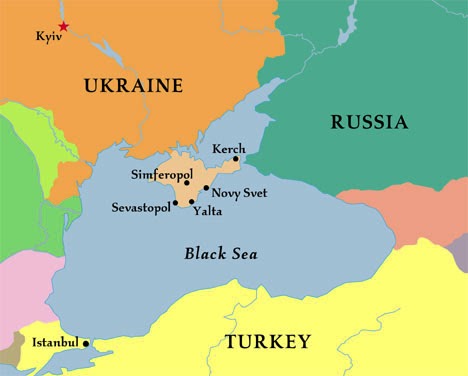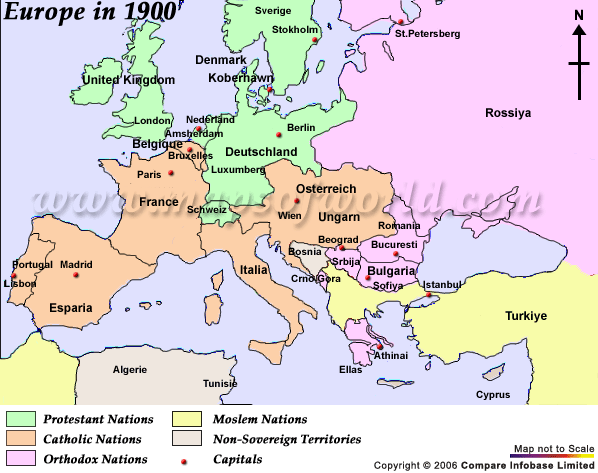_____________________________________________________________________________________
In part I of my entry on the ethical dimension of Non-State Armed Groups (NSAGs) I attempted to show why research and discussion of these issues matters and described the current state of research. This second part will focus on the theoretical background that is needed in order to introduce NSAGs into the ethical debate.
While policymakers, depending on their political attitude, often label NSAGs as either “terrorists” or “freedom fighters” to put a certain complexion on them, the term Non-State Armed Group is quite neutral and does not preset any normative position. Instead of labeling certain groups according to their actions, I will raise the question if and in what way NSAGs can be considered moral agents, i.e. entities that can be held morally responsible for their decisions and behavior. These considerations will be preceded by a short overview over important terms that are often used in ethical debates.
Ethical Terms - Ethics, Morals, Ethos, Law
In order to discuss ethical matters, some of the key terms need a short explanation. First of all, ethics itself is concerned with justifying moral theories and attitudes. It is, therefore, the science that deals with morals and ethos. For example, Immanuel Kant’s categorical imperative is a moral theory that determines what is good and bad, while the justification of why the categorical imperative should be applied is ethical reasoning. As seen in the example above, some moral theories are normative, i.e. they determine what is right and wrong, while a descriptive understanding of morals would explore existing concepts and look into what a certain society at a certain point in time accepts as generally good or desirable respectively as evil/bad/wrong and prohibited. A subcategory of morals is ethos, the moral attitude of a person or group. Finally, law consists of codified and compulsory norms including sanctions. In some societies, law and morals are very close or even identical, even though this is rather the exception than the rule. For example, certain aspects of administrative law are hardly based on moral intuition but more likely on rational considerations.
Moral or Social Responsibility of NSAGs?
First, as a matter of principle, moral agency requires the agent’s ability to make moral judgements and act with reference to right and wrong. NSAGs are usually hierarchically structured organizations composed of human beings. Successful NSAGs do not only engage in armed violence, but are also capable of raising funds, long-term strategic planning, logistic support and recruiting new members, skills that indicate that the (decision-making) leadership of NSAGs is sufficiently rational, a widely accepted precondition for moral agency. It is disputed, though, if being able to make moral judgements is equivalent with being required to actually do so, as some scholars hold that only actual people, not artificial organisms can have moral responsibilities. In the field of business ethics, this debate is ongoing for decades, with Nobel Prize winning economist Milton Friedman as protagonist of the idea that "there is one and only one social responsibility of business–to use it resources and engage in activities designed to increase its profits so long as it stays within the rules of the game, which is to say, engages in open and free competition without deception or fraud."
 |
| Portrait of Milton Friedman |
The question if an organization can be a moral agent depends on the understanding of morality itself. In a descriptive sense, morality is a means to make a human society function. From a historical perspective, the first organizations were of political and religious nature and oftentimes served the very same purpose, to enable and guide growing societies, intentionally or not. The invention of business entities created a new kind of organizations. Their purpose is not to benefit the society at large, but primarily their owners. However, because business entities offer solutions to societal needs (like products, services, jobs), their efforts happen to have positive effects on the society they operate in, which is precisely the “social responsibility” of business that Milton Friedman had in mind.
To sum up, rational individuals are moral agents with moral responsibilities, at least when they choose to live in a society, while traditional political organizations (governments) serve a similar purpose than morality. Since they are composed of rational individuals and act on behalf of their people, they are oftentimes required to act morally, too. Business organizations, however, do not share this moral responsibility, because they serve a different purpose. To ensure that they do not cause harm to a society, they are bound by laws. Nevertheless, many people demand social responsibility of business enterprises that goes beyond legal regulations because their conduct might have negative effects on societies that are hardly restrictable by law. If businesses are actually obliged to a socially acceptable conduct beyond legal regulations remains a matter of debate.
To integrate NSAGs in this system, the focus has to be on their (self-given) purpose. Many NSAGs are motivated by a certain or several grievances that are usually caused by the (in their perception) incompetence or morally objectionable behavior of the responsible governments. In case of the former justification, NSAGs argue that their political leaders could ensure a social coexistence (of their peer group) preferable to the current one, while in the case of the latter, ethical justification of their insurgency, NSAGs make themselves quasi moral agents as they show the capability to decide between good and bad and request moral behavior from others.
Of course there might be other motivations for NSAGs as well. Economic theories often treat insurgencies as criminal acts with the objective to gain power over natural resources or even hold that “where civil war is feasible it will occur without reference to motivation” (p. 2), a position that is not undisputed (See for instance here and here). In fact, some NSAGs use abduction on a massive scale to fill their rows. For example, almost 88% of the fighters of the Revolutionary United Front (RUF), a major NSAG during Sierra Leone’s Civil War, reported that they were abducted (p. 438). This is a clear sign that not all or only very few of the members of such NSAGs are motivated by societal grievances. One the other hand, events like the Arab Spring and its aftermath impressively demonstrate that the emergence of NSAGs as well as the associated insurgencies, violent conflicts and even civil wars can be motivated by grievances like experiences or perceptions of injustice. In the following I will focus on NSAGs with this sort of background because I regard any discussion of the ethical dimension of fundamentally inhuman, extremely cruel, exceedingly avaricious and alarmingly irrational non-state violent actors as redundant. This means that terrorist groups are also excluded from the following considerations as the immense immorality of their means - killing noncombatants to spread existential fear among a certain group of people - blocks the way for any further ethical discussion.
 |
| The leader of Uganda's Lord's Resistance Army rebels, Joseph Kony, surrounded by his officers in Nabanga, Sudan, August 1, 2006. Image Source: Reuters |
One example of high-level irrationality among NSAGs is the leadership of the so called Lord’s Resistance Army (LRA) that originates from Uganda and operated in Sudan (now South Sudan) and countries in Central Africa. Let me quote two news articles that illustrate what I mean by such NSAGs. You will certainly understand why I believe that any discussion of their ethical dimension is futile: “The rebel group began in 1986 as the Holy Spirit Movement, a Christian fundamentalist revolt under the leadership of a cult leader, Alice Lakwena, who claimed to give her followers immunity from bullets by anointing them with holy water”, while the current leader of the LRA, Joseph “Kony is a former faith healer who wears white robes and claims to talk directly to God. His followers embrace an eclectic group of beliefs, including prohibitions against riding bicycles, killing pigs and eating white-feathered chickens. Punishment is severe: the rebels have chopped off the feet of young men caught riding bicycles.” Furthermore, Mr. Kony “has nurtured a cult of personality, claiming he is visited by a multinational host of 13 spirits, including a Chinese phantom. Former abductees speak in awed terms of his "magical powers" and abrupt mood changes.” You can find the full articles here and here.
The interim result
NSAGs that are motivated by a certain grievance usually have the objective to eliminate this grievance for the benefit of their peer group. They are willing to fight an evil with another evil, i.e. armed violence and its harmful consequences. Given that the grievance that motivates them is real and can realistically be resolved by the use of force, the insurgents will most likely presuppose that the end justifies the means and, therefore, consider themselves as moral actors. As a political organization, they want to enhance a dysfunctional society. In this respect both NSAGs and governments serve a similar purpose than morality - at least from a very pragmatic and un-metaphysical perspective. They are, therefore, not moral agents with moral responsibility in the same way that individuals within a society are, but are still bound by the moral values of the peer group they are fighting for - similar to official governments. The term social responsibility does not apply to NSAGs as it is usually used in the context of organizations which’s actions are not primarily intended to affect a given society in any way, e.g. business enterprises.







